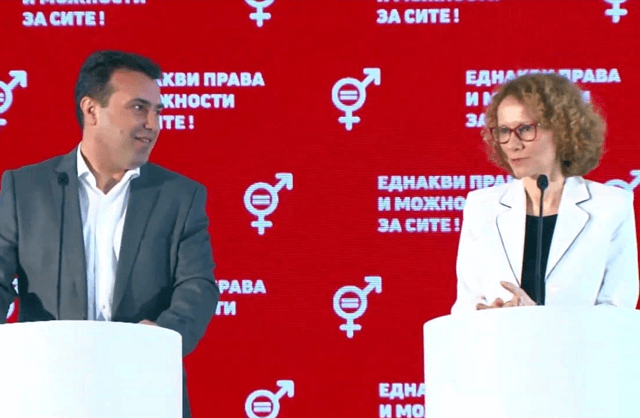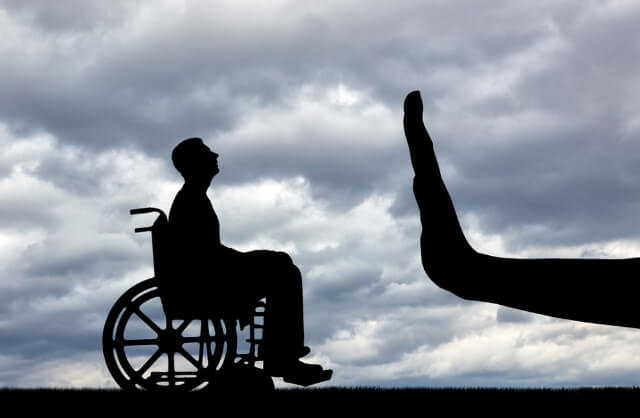North Macedonia Ruling Alliance Pushes Gender Equality in Elections
March 16, 2020

Activists have greeted the move of the country’s ruling alliance to equalize the number of male and female candidates for the forthcoming April 12 early general elections.
Human rights activists in North Macedonia say they are encouraged by the decision of the alliance led by the ruling Social Democrats to make the number of women and men MP candidates on their election lists equal.
The move, announced last week, is the first time that one of the main political parties or alliances in the country has opted for completely equal gender representation.
In another unprecedented move, the ruling alliance also said its lists of candidates in all six electoral districts will be led by a tandem of front-runners, one male and one female.
For the purpose of the elections, North Macedonia is divided into six districts, each electing 20 MPs to the 120-seat parliament. The front-runners are the first persons on the candidate lists who lead the party campaigns in that region and have the highest chance of being elected.
“Our goal is to create a society in which everyone, male or female can fully accomplish their full potential,” Social Democrat leader Zoran Zaev said.
Uranija Pirovska, head of the Macedonian Helsinki Committee for Human Rights, told BIRN that the move was an encouraging affirmative measure after years of discouraging narratives in society, where women politicians had often faced gender-based discrimination and hate speech.
“This is a positive step forward,” said Pirovska, or rather a “good starting point… that will encourage many women” because “society in North Macedonia only started speaking openly about gender equality and demanding true positive and affirmative change a few years ago”.
“I see many women on those lists who have relevant backgrounds, who stood for something in the past, some activists as well, and this gives me hope,” Pirovska added.
After the women are elected, “the time will tell whether they indeed apply those things they were fighting for; whether they preserve their integrity and initiate positive action,” Pirovska continued.
Women are better represented in parliament in North Macedonia than in some other countries in the region. At the last elections in 2016, 38 out of 120 deputies were women.
This is largely owing to earlier affirmative measures that obliged political parties to set aside at least 30 per cent of their lists for women. But parties often observe this rule only formally, and put them lower down on the list, where they are unlikely to win.
The head of the Skopje-based NGO Civil – Centre for Freedom, Xhabir Deralla, said he was “genuinely and pleasantly surprised” by the move.
He noted that this time, on the lists, “women are put higher up, in wining positions”, which makes him optimistic that female representation in parliament will only grow after the elections, especially considering that the move comes from one of the two main political blocs in the country, which has the highest chance of getting most mandates.
“This time I recognize an honest intent to establish gender balance,” Deralla said.
The April 12 elections will pit the pro-European Ruling Social Democrats, who have been in power in the last almost three years, against the rightist VMRO DPMNE party, which is a staunch critic of the historic name agreement with Greece, which reopened the country’s doors to Euro-Atlantic integration.


